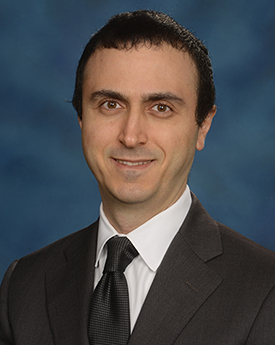Psychotherapy Training
Learning the art of psychotherapy is an essential part of a psychiatrist’s training.
At the University of Maryland/Sheppard Pratt Psychiatry Residency Training Program, we put a strong emphasis on the applications of psychotherapy in treating psychiatric patients across a wide range of settings. Psychotherapy education starts in the first two years, where residents work on the inpatient units, consult service and emergency psychiatry services. Fundamental principles of psychotherapeutic theory and practice are taught in order to underline their relevance even for more acute care settings. For example, cognitive behavioral therapy (CBT) and dialectical behavior therapy (DBT) skills are taught early, helping patients better manage overwhelming emotional states. Motivational interviewing skills are also fostered early on, an intervention which helps individuals struggling with substance use disorders, a fundamental consideration given the opioid epidemic we are confronting.
Psychotherapy training reaches a peak in the third year, during which residents are immersed in outpatient work with a wide variety of patients, from those suffering from trauma-related disorders to individuals with severe and persistent mental illnesses. For many years, we have been offering therapy to professional graduate students who seek help at the Student Counseling Center to help address issues such as anxiety, depression and interpersonal struggles. Residents are also encouraged to offer long-term psychotherapy to their child and adolescent patients, as well as to couples and families.
Through didactics, live observation of senior psychotherapists practicing their craft and individual supervision, residents become skilled in cognitive behavioral therapy and psychodynamic psychotherapy, also learning the principles of several other modalities. Faculty members include graduates of the Beck Institute of Cognitive Therapy and psychoanalysts from the Washington Baltimore Center for Psychoanalysis.
The fourth year – which is largely elective – includes the opportunity to continue longitudinal psychotherapy with outpatients and to explore advanced psychotherapy training in settings such as a college student mental health clinic and a specialized residential program at The Retreat at Sheppard Pratt.

Christopher W. T. Miller, MD
Director of Psychotherapy Training
Dr. Miller is an associate professor in the Department of Psychiatry at the University of Maryland School of Medicine.
He is a graduate psychoanalyst from the Washington-Baltimore Center for Psychoanalysis.
His interests include integration of neuroscience and psychotherapy, developing teaching strategies to educate residents on psychodynamic theory and practice, and interdisciplinary explorations between psychotherapy and the Humanities.
He is the author of “The Object Relations Lens: A Psychodynamic Framework for the Beginning Therapist.”

